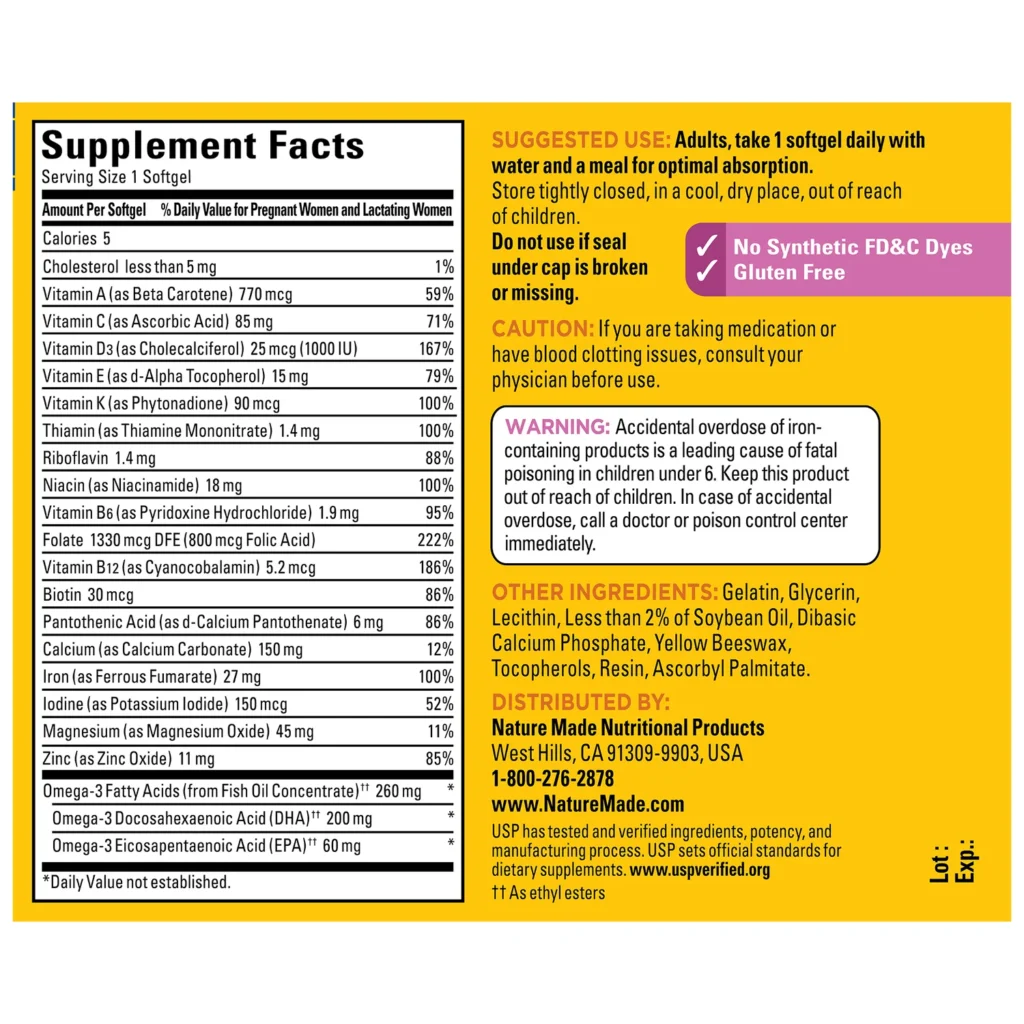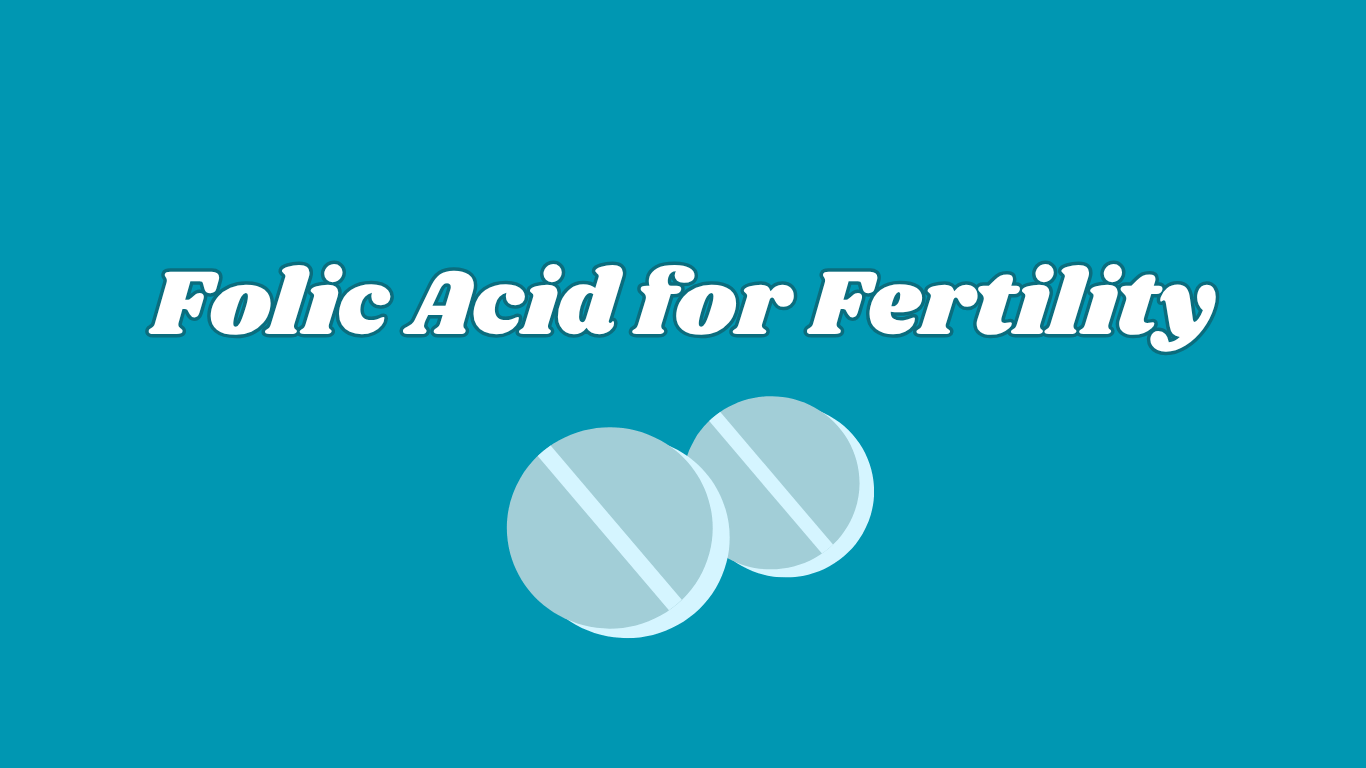When you’re trying to conceive, getting the right nutrients is one of the first steps toward a healthy pregnancy. One of the most important vitamins during this time is folic acid for fertility and early fetal development. Recommended by leading health organizations, folic acid has been shown to reduce the risk of neural tube defects and support reproductive health.
Disclaimer: The information in this post is not a substitute for professional medical advice. Be sure to discuss your options with your doctor to create the best plan for your needs! This post about folic acid for fertility provides recommendations based on evidence but doesn’t replace advice from your doctor.
Table of Contents
How Much Folate Do You Need Daily?
To reduce the risk of birth defects, it’s recommended that individuals capable of becoming pregnant consume at least 400 micrograms (mcg) of Dietary Folate Equivalents (DFE) daily starting at least 1 month before conception.
400 mcg DFE daily
Ideally, you should begin taking a supplement with folic acid 3 months before pregnancy. This ensures you’re building up sufficient folate levels prior to conception.
Basically, if you’re hoping to conceive, begin taking a prenatal vitamin right away.
Check the amount of folic acid on your supplement bottle. Below is a picture from the Nature Made prenatal vitamin, which is what we use. It contains 1330mcg DFE.

Why Supplementation Is Recommended
It’s difficult to get enough folate from diet alone. Especially when trying to reach the recommended daily intake consistently.
That’s why taking folic acid supplements is recommended for people who are trying to conceive or are in the early stages of pregnancy. This allows you to consistently reach your folate goals everyday.
What are Dietary Folate Equivalents (DFE)?
DFE are a standardized way to account for differences in bioavailability (how well folate is absorbed and used by the body). Synthetic folic acid is more easily absorbed than naturally occurring food folates.
Here’s how DFE values compare between different forms:
- 1 mcg DFE = 1 mcg natural food folate (e.g., leafy greens, liver)
- 1 mcg DFE = 0.6 mcg folic acid from fortified foods or supplements taken with food
- 1 mcg DFE = 0.5 mcg folic acid from supplements taken on an empty stomach
What do these values mean? It takes less folic acid to reach your folate goal compared to natural folates. Why? Folic acid is more bioavailable for the body to absorb.
**Side note, some people do have a mutation that can impact absorption. However, taking a folic acid supplement still increases the levels of folate for these individuals too.**
Example, the recommended 400 mcg DFE per day can be met by just 240 mcg of folic acid from a supplement.
400 mcg DFE = 240 mcg folic acid
Examples of Folate-Rich Foods
If you want to increase folate levels with diet too, here are some common foods that contain folate with their approximate DFE values per serving:
- Beef Liver (3 ounces) – 215 mcg DFE
- Boiled Spinach (1/2 cup) – 131 mcg DFE
- Fortified Breakfast Cereal – 100 mcg DFE (check the label for specific values)
You should not try to get your folate through food only.
Even though these foods contribute to your overall intake, supplementation with folic acid is recommended to ensure consistent levels to protect fetal development.
Why Folic Acid Is Recommended Over Methylfolate
Folic acid has been extensively studied and recommended by major health organizations such as the American College of Obstetricians and Gynecologists (ACOG), the Centers for Disease Control and Prevention (CDC), and the Institute of Medicine.
Comparing methylfolate and folic acid can be confusing because there is so much information out there. But put simply, there is strong clinical evidence that folic acid reduced the risk of neural tube defects (NTDs) in developing babies.
Methylfolate is the active form of folate and is often marketed as a more “natural” option. However, the evidence supporting methylfolate in preventing NTDs is currently inconclusive, which is why folic acid remains the first-line recommendation.
Also, there’s limited information available about the DFE equivalence of methylfolate, which makes it harder to dose accurately compared to folic acid. One study suggested that 400 mcg of folic acid may be roughly equal to 416 mcg of methylfolate, but more research is needed to confirm this across diverse populations.
While methylfolate may be appropriate in certain clinical situations (e.g., individuals with MTHFR gene mutations), folic acid remains the gold standard for most people planning a pregnancy.
How Much Folate Do You Need During Pregnancy?
Folic acid for fertility is important, but you also need to supplement while pregnant!
Once you’re pregnant, the daily recommendation increases to 600 mcg DFE during the first 12 weeks of pregnancy, a critical window for fetal neural tube development.
Folic Acid for Fertility Takeaway
Folic acid for fertility is critical when trying to conceive and during early pregnancy.
Currently, folic acid is the most reliable and evidence-based option for preventing neural tube defects.
Be sure to aim for 400 mcg DFE daily before pregnancy and 600 mcg DFE during the first trimester.
While eating folate rich foods is important, supplementing with folic acid provides an added layer of protection. Folic acid is backed by decades of research.
More From Pride Fertility Guide

Folic Acid for Fertility: What’s recommended?
